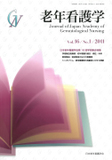Japanese
English
- 販売していません
- Abstract 文献概要
- 参考文献 Reference
- サイト内被引用 Cited by
抄録
本研究の目的は,重度認知症高齢者に経皮内視鏡的胃瘻造設術(胃瘻)による経管栄養法を選択した家族の代理意思決定に伴う心理的プロセスを明らかにし,その課題と看護支援への示唆を得ることである.研究方法は,胃瘻を選択した認知症高齢者の家族13人に対して半構成的面接を行い,修正版グラウンデッド・セオリー・アプローチを用いて分析した.そのプロセスは≪摂食困難への悩み≫≪命をつなぐための選択と葛藤による絞り込み≫≪最後までみる覚悟をしての決断≫≪胃瘻のある生活への不安と期待≫≪介護生活に対する自信と不安≫≪満足するものの自問自答を繰り返す≫の6つのカテゴリーで構成された.家族は医師への信頼と患者の命をつなぎたい思いから胃瘻を決断していた.しかし,そこには迷い,葛藤,不安,答えの出ない代理意思決定への悩みが存在した.看護師は家族に対して高齢者にとっての胃瘻の意味を考えるように促し,家族が自らの決定に意味を見いだせるようにかかわる必要性が示唆された.
The objective of the present study was to elucidate the psychological process associated with the decision made by family members as surrogate decision-makers to select percutaneous endoscopic gastrostomy (PEG) feeding for elderly patients with advanced dementia, and to identify issues and suggestions for nursing support. Semi-structured interviews were conducted with 13 family members who selected gastrostomy for elderly dementia patients and interview contents were analyzed using the Modified Grounded Theory Approach. The process was shown to consist of the following six categories: “concerns regarding difficulty eating”, “choices for prolonging life and narrowing down choices through conflict”, “decision based on acceptance that one will take care of the patient until the end”, “anxiety and expectation toward life with PEG feeding”, “confidence and anxiety regarding provision of care”, and “repeatedly second-guessing oneself despite being satisfied”. Family members decided to select gastrostomy based on their trust in the physician and their desire to prolong the patient's life. However, this decision came with doubts, conflict, anxiety, and concerns about indecisiveness as a surrogate decision-maker.
These findings suggest the need for nurses to encourage family members to consider the meaning of gastrostomy from the elderly individuals' perspective and to provide support that enables them to find meaning in their decisions.
Copyright © 2011, Japan Academy of Gerontological Nursing All rights reserved.


